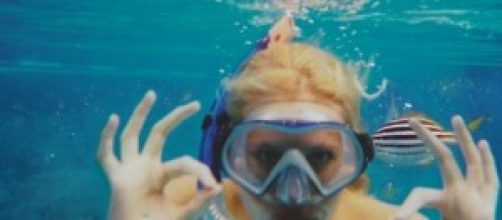No doubtsocial media has changed the way we perceive and interact with the outsideworld. Thanks to Facebook, Twitter and Instagram, we can constantly stay intouch with our friends, exchanging photos, thoughts and moments. We can also connect with people that we would never have theopportunity to meet, as well as see places that we would never have theopportunity to see.
Great – but likemany of us, I somehow have mixed feelings about social media.
Isn’t thisconstant stream of tweets, posts, pictures and likes very surreal? Aren’t we somehowreplacing real people and sensations withvirtual connections?
By sharingevery single moment of our life, I wonder if we are actually enjoying what is presentin the here and now. The majority of the posts with hastags like #fun #great #cool seemonly a way to impress people. And are we enjoying for real the sunset in front of our eyes - or rather our screen?
Perhaps, thisis one big illusion.
The distortingand perturbing side of social media is precisely what the project of the Dutchstudent Zilla van den Born well portrays. The Amsterdam-based student, 25, toldeveryone (except for her boyfriend, the only person who knew the truth) thatshe would be travelling for five weeks around Asia. She packed her bags, wentto the airport, said goodbye to her family and friends… and went back home,where she instead spent the following five weeks.
During those42 days, she behaved as most of us do in our current Instagram society– namely,she posted a torrent of pictures on her social media pages. Photos of herself eating exotic food, sittingnext to a Buddhist monk in a temple, and snorkeling into the waters ofThailand. She uploaded images of stunning beaches and astonishing sunsets, aswell as images of delicious Thai food and great nights out. She even redecoratedher own apartment to make it look like an Asian hotel room, so to fool herparents during Skype conversations.
In reality,she had never left her home city. All pictures were taken in Amsterdam, withthe help of Photoshop and filters. Very hard to believe, she didn’t see amazingsunsets and beaches.
She never had dinner in a Thai restaurant. Neither shemade new friends.
Zilla playedthe prank as part of a project for her University. As she told media in theNetherlands, her goal was “to prove how common and easy it is todistort reality. Everybody knows that pictures of models are manipulated. Butwe often overlook the fact that we manipulate reality also in our own lives”.
With this project, Zilla certainly fooled her family andfriends. But most importantly, she showed us all how social media can destabilizethe gap between feeling and seeing, looking and touching, texting andsocialising.
Social media are great – but they are only a representation of real life. Andoften distorted.

